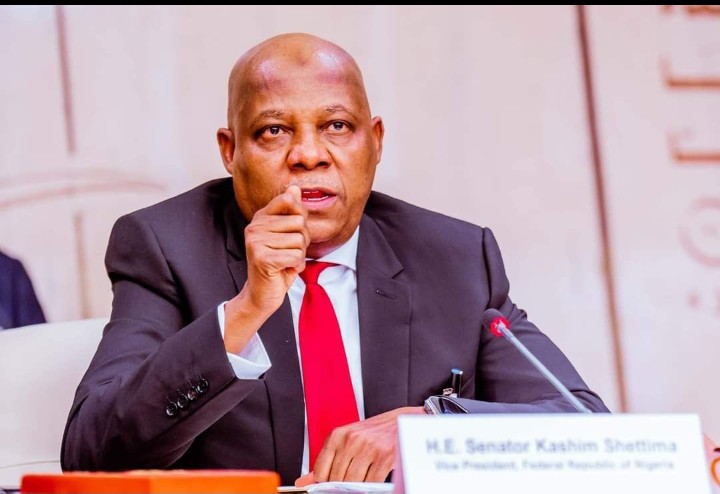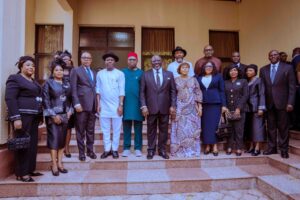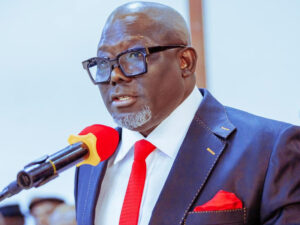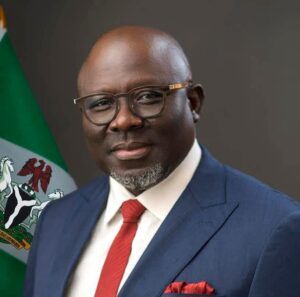
VP Shettima in Rome
By Praise Agbro, Lagos
Nigeria has mobilized over half a billion dollars for innovative, profitable, equitable and sustainable food systems transformation initiative, according to the Vice President, Sen. Kashim Shettima
[the_ad id=”16914″]
The Vice President made the disclosure while chairing a high-level meeting on the first day of the UN Food Systems Summit declared open in Rome, Italy by the United Nations Secretary General, Antonio Guteress.
Vice President Shettima said the funds were mobilised “through domestic resources, multilateral development banks, international financial institutions, climate funds leading agro-businesses,” and would be used for “Innovation finance for food system transformation; development of Nigeria’s agro value chain and Special Agro-Industrial Processing Zones programmes.”
Explaining further, Sen. Shettima said “in this event, the Government of Nigeria will be showcasing its Value Chain Development Programme (VCDP) as a unique example of a successful partnership between producers, the public sector and private operators.”
[the_ad id=”16918″]
“The VCDP which is co-funded by the of Nigeria and IFAD has empowered vulnerable farmers and youth to engage into commercial partnerships with some of the biggest food processing and marketing firms in the world such as OLAM, a world leading agri-business company operating in over 60 countries with an annual revenue of about $39.8 billion,” the Vice President added.
Stating the government’s vision about ending hunger, the VP added that “building on the success of the VCDP, the Federal Government is determined to capacitate Nigeria’s rural smallholders and operators, youth and women living below the poverty line to take advantage of the new Special Processing Zones.”
On the Special Agro-Industrial Processing Zones (SAPZ), Vice President Shettima said it “brings together local governments, IFAD, AfDB, IsDB, GCF, OLAM and other private actors alongside the government of Nigeria for transformative financing of food systems that leaves no-one behind.”
[the_ad id=”16917″]
While featuring in the panel discussion with the Prime Minister of Somalia, Hassan Sheikh Mohamud; Deputy President of Kenya, Rigathi Gachagua; and Prime Minister of Niger Republic, Ouhoudou Mahamadou, the VP said President Tinubu “is determined to transform the concept and meaning of modern governance” by demonstrating commitment towards the food system in the country.
According to him, “President Tinubu hit the ground running from day one of his administration, which is barely two months in office, and has therefore declared state of emergency in food security and took it as a livelihood item within the National Security Council.”
On removing impediments to economic recovery, he said “we had two albatrosses around our necks: subsidy on petrol and multiple exchange rates system.
“We withdrew the subsidy on petrol from day one, just like President Ruto did in Kenya. To mitigate the effects of the subsidy removal, the government embarked on the immediate release of grains and fertilizers.
“A commodity marketing board has been put in place to continuously review and monitor the prices of food items.”
“Along this way, the President has already approved the infusion of huge quantum of funds towards repositioning of our security architecture because we have similar problems with Somalia and Kenya, especially in the northeast and northwest regions of the country. We are repositioning our security architecture to provide support for farms and farmers.”
[the_ad id=”16920″]
In attendance were the President of IFAD, Dr. Alvaro Lario, H.E. Muhammad Suleiman Al Jasser, President of Islamic Development Bank (IsDB), Vice President of AfDB, Mrs. Hassatau N’Sele, Vice President of OLAM International Mr. Reji George and Vice President, Commodity Alliance Forum (Representative of farmers) Mrs Ejim Lovelyn.







